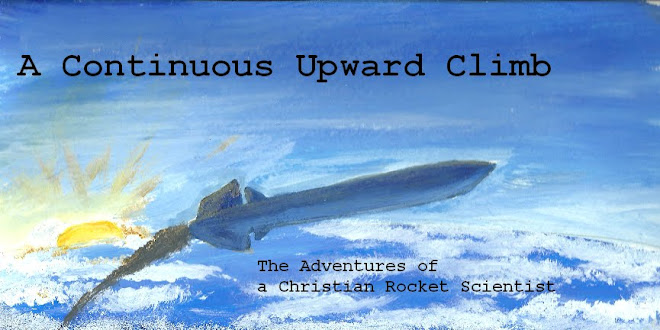Partly inspired by The Amateur Geek and partly inspired by my own love for learning, I have decided to beef up my reading list. While I don't think I could manage a book every single day (I'm a slow reader, and piled high with homework from AP classes), I will attept to complete at least two books a week. I recently got a tall stack from the library, including the following:
- Six Easy Pieces: Essentials of Physics Explained by Its Most Brilliant Teacher (Richard P. Feynman)
- The Physics of Star Trek, by Lawrence M. Krauss
- A Tribble's Guide to Space: How to Get to Space and What to do When You're There, by Alan C. Tribble
- Enrico Fermi and the Revolutions of Modern Physics, by Dan Cooper
- 1001 Things Everyone Should Know About Science, by James Trefic
- Mars: The NASA Mission Reports (very cool stuff!!)
- The Pluto Files: The Rise and Fall of America's Favorite Planet, by Neil deGrasse Tyson
- "What Do You Care What Other People Think?" Further Adventures of a Curious Character, by Richard P. Feynman
- Ender's Game, by Orson Scott Card (I don't read a lot of fiction, but I've heard a lot of people say this is their favorite science fiction novel, so I was curious about it)
- The Authorized Ender Companion, written by Jake Black (It even has an entire encyclopedia of information about it!)
- And a few other books about Mars, because I seem to be going through a Mars "phase." I can't seem to get enough of the red planet.
- Bad Astronomy, by Philip Plait. While I'm not duped by the many misconceptions described in the book about astronomy and how science works in general, it did give me deeper insights into how the universe works, and how to explain its workings to people who are, well, duped.
- Rocket Dreams, by Marina Benjamin. I didn't really like this book. It wasn't exactly about the exciting things to come in the Space Age, it was basically a comment (or a question, really) as to where the dreams of the Space Age went. What?? There are
thousands, millions of people who dream of outer space and deep space explorations. Those dreams haven't died. They haven't even gone dormant. - Rare Earth, by Peter D. Ward and Donald Brownlee. Quite an interesting read. It was rather a roller coaster ride for me: one instant I'll be nodding in agreement, the next I feel like throwing the book at the wall for their ignorance and scientific fallacy. But the basic purpose was to describe why complex life is probably uncommon in the Universe. Yeah. There aren't any aliens.

3 comments:
"While I'm not duped by the many misconceptions described in the book about astronomy and how science works in general, it did give me deeper insights into how the universe works, and how to explain its workings to people who are, well, duped."
I have never seen this book, does he spend time talking about correcting astronomy misconceptions in the general public?
Yes, he does. He combats misconceptions that range from why stars twinkle to astrology and the moon landing hoax. He also explains how science fiction movies and other media puts the wrong ideas into people's heads about astronomy and space. It seems like the kind of book you would like, I recommend it. I think I've seen you link to badastronomy.com (it might have been a different blog) so you might already be familiar with him. But yes, it's a pretty good book.
I do read that blog, i was getting a bit sick of him constantly plugging the book... But I should pick it up anyway : )
Post a Comment